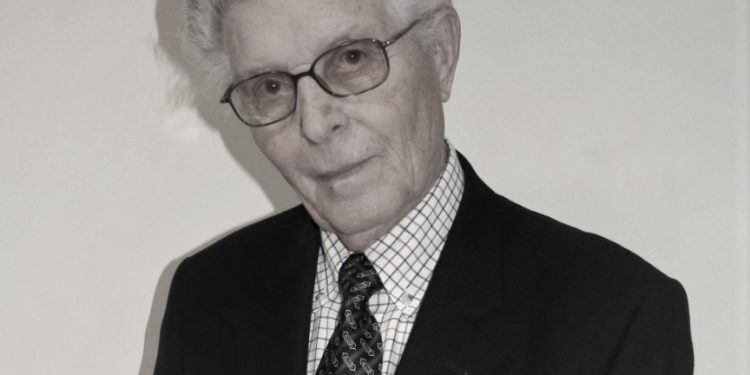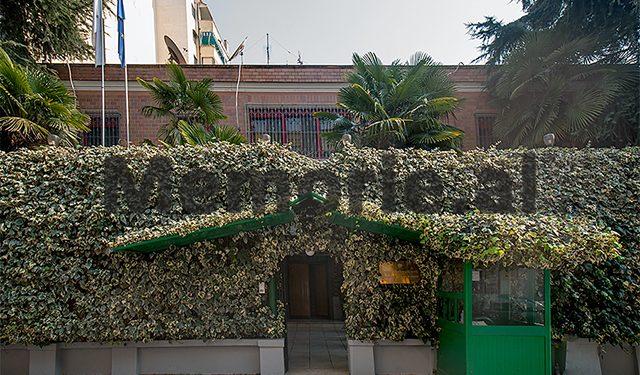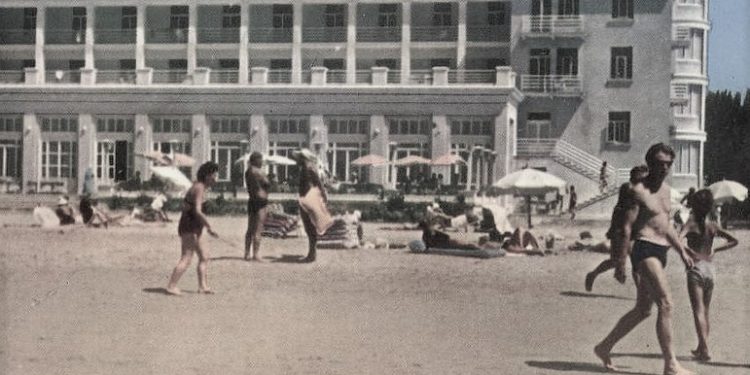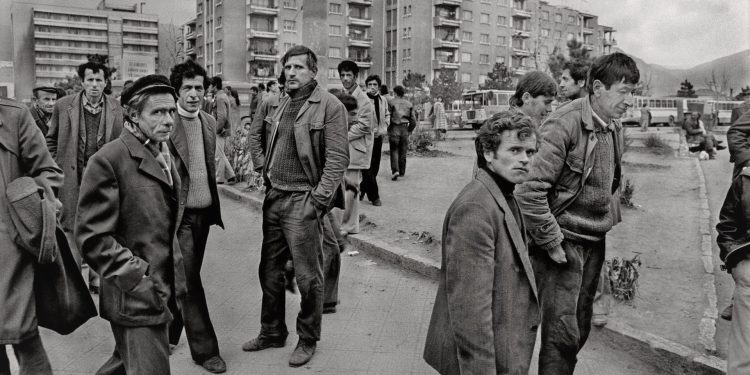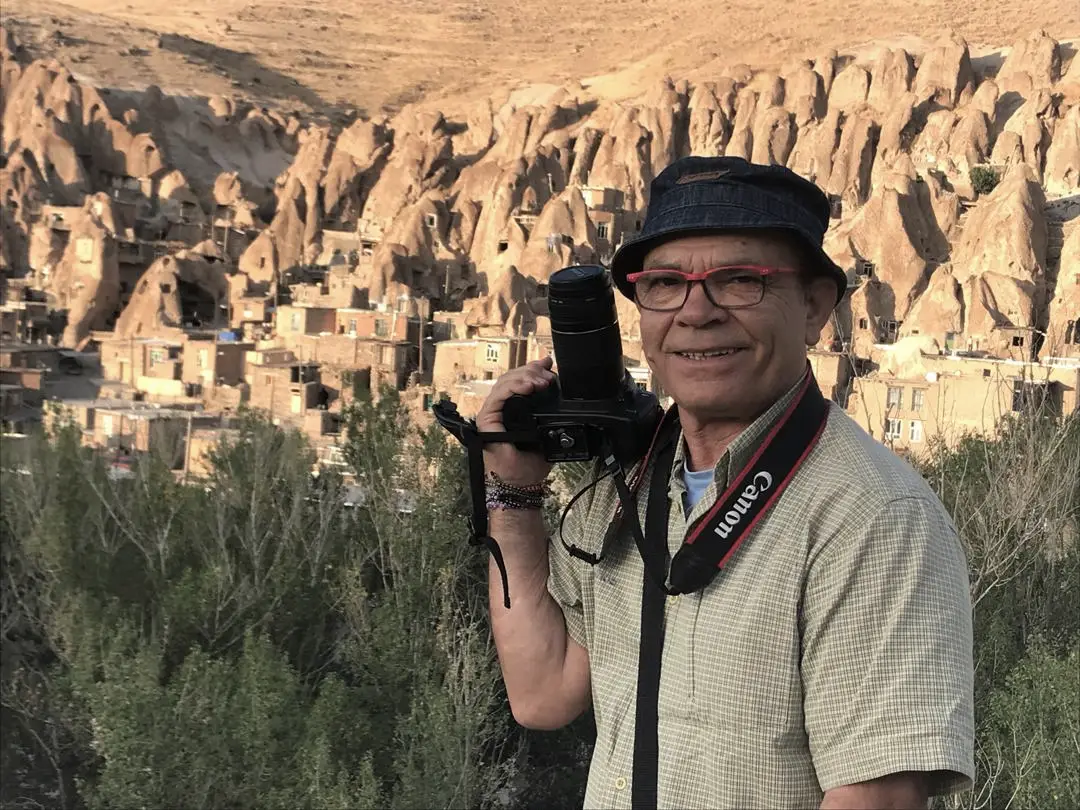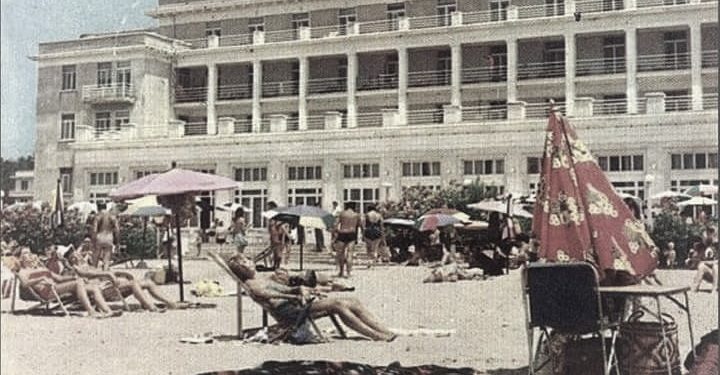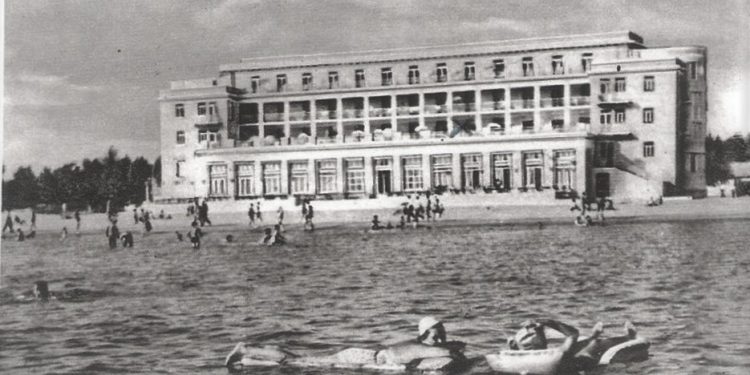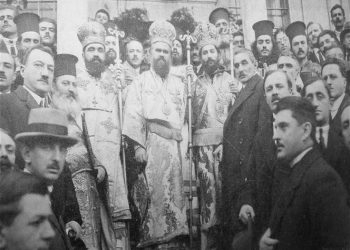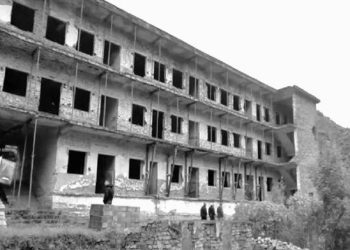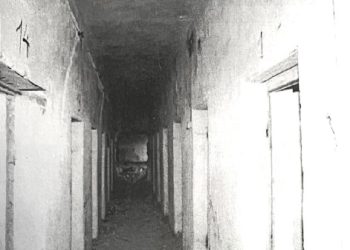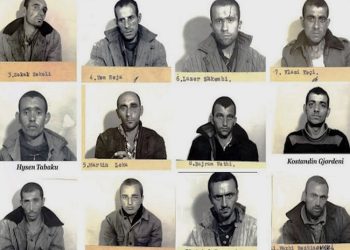By Vasil Qesari
Memorie.al/ The overthrow of the great totalitarian edifice in Albania would leave behind, not only the change of the system, accompanied by lots of hopes, mirages and cries of happiness but, unfortunately, also many wounds, dramas, victims, dust, milk and disappointments from the most different. Ten years and more after that event, which deeply shook society, completely overturning many previous codes, rules and concepts, people still continue to ask themselves such questions as: What really happened in society Albanian, during the last 50 years of the dictatorship? How was it possible that the system managed to warp everything? Why did people accept it? What was the totalitarian logic of the transformation of society and the individual? How were the structures of totalitarian mechanisms conceived and functioning: propaganda, secret police and the exercise of the ideology of terror? How did it happen that among all the communist countries of Eastern Europe, Albania was considered an exception or a special case? Why did Enver Hoxha remain blindly, fanatically loyal to Stalin until the end, turning the country into a prison where violence, fear and purges continued until the end of the 80s? Why was the country so insanely isolated, locking people up between bunkers and barbed wire? Why, then, did all the above phenomena happen…?! The book “Post-scriptum for Dictatorship” does not claim to provide definitive answers to the above questions, or the complexity of the reasons that brought and maintained the totalitarian power in Albania. Nor is it a complete, deep and comprehensive fresco of the life and suffering that people experienced during that system. Its author, perhaps, has the merit that together with the retrospective view of the totalitarian period as well as the zeal of a passionate analyst, he has tried to turn his head back once again, to give not only his personal memories and opinions, but also to return once again to the vision of that era with the simple philosophy of preserving the Memory and supporting the Appeal to never forget the well-known maxim, that…the corpse’s nails and hair continue to grow even after death! Ten years or more after the great revolution, the book in question has current value and we hope it will be appreciated by the reader because, as an Albanian researcher also says… the greatest evil that can happen to a people comes when he fails to analyze his own past. An amnesic people are forced to be constantly neuropathic and repeat their painful experiences…!
Memoirs of Emile Guinard, former Deputy Consul of France in Albania during the years 1966-1970
– DIPLOMAS IN TIRANA –
At the beginning of the 70s, among 15 foreign embassies in Tirana, only three of them represented Western countries, or as they were otherwise called bourgeois-capitalist countries. They were the embassies of France, Italy and Turkey. The largest embassy in the capital was that of the People’s Republic of China, which had a staff of over 50 people. It included, first, the ambassador, who was one of the veterans of the ‘Great March’, 20 diplomats and, the rest, specialists who covered various fields such as those of aid, their delivery, construction of facilities industrial, military, agricultural, etc.
Unlike other embassies, only the Chinese embassy (which resembled a real castle in the middle of Tirana), enjoyed the trust and sympathy of the authorities. But, along with it, the Vietnamese was somewhat respected because of the war that its people waged against the American imperialists. The others, capitalist or socialist, were always suspicious and their functionaries were monitored and followed step by step by the secret police.
Somewhat calmer, among the flowers and greenery, were the Italians. They were installed on the territory of the former American representative office. Meanwhile, the record of expulsions for suspicious activities was held especially by the Bulgarian commercial representation. Almost every three months, one of its employees, according to the Albanian authorities, was caught red-handed and considered persona non grata, on the charge of carrying out agent activities for the benefit of the Soviet secret services.
Even the relations with the Poles were very tense, not only because they were revisionists, but also because the Albanian ambassador in Warsaw was expelled by the Polish authorities for interfering in the internal affairs of that country. While the Cuban embassy was viewed with a bad eye, because of Fidel Castro’s flirtation with the Soviets. A little more privileged were, to some extent, the embassies of Arab countries and, to some extent, that of Romania.
From time to time various incidents happened with the diplomats. Apparently they brought the authorities a special pleasure. But, once, a big scandal broke out for the Albanians themselves. This happened, after the expulsion of the diplomats of the Ghanaian embassy and the closure of their representation for seven to eight months. The mystery of that incident came to light later. A young girl from Tirana who served in that embassy as a cleaner, suddenly became pregnant and, when the moment of birth came, the midwives of the maternity ward were stunned, when on their hands there was a pretty baby of…black color.. .!
Meanwhile, the Czechoslovak embassy experienced a serious drama. Her commercial attaches, you had taken away from yourself with a bullet in the head, which according to some voices, happened because of a nervous depression. But, as if this was not enough, in the Turkish embassy, the third secretary was thrown from the window, also for neuro-psychological reasons. In the vortex of such a reality, it is understood that being a diplomat in Tirana at that time was not at all pleasant, interesting or euphoric.
With the exception of the Chinese, almost all other foreign diplomats were considered enemies of Albania. But what was revolting and most annoying was the permanent presence of secret police agents, who followed them wherever they went.
Our Albanian service workers – says Emile Guinard, former Deputy Consul of France during the years 1966-1970 – were all appointed by the State Security. We knew very well that, by the way, our Albanian gardener was their agent. He used to get a pair of new shoes every year at the nearby police station. Every month, a PTT technician came to our homes to replace the telephones and every month, we went to the barber of the Hotel “Dajti”, a well-known agent of Albanian secret police.
During the hot summer season, for the families of the diplomats, the only entertainment was the days spent on the beach and the “Adriatik” hotel in Durrës. But even there, we did not find peace. On walks by the sea, in the sun, in the baths in the sea or in the restaurant, we were constantly watched by civilians wearing dark glasses. During the day, they usually went to the beach next to us, and during lunches and dinners, they ate in silence, sitting in front of our table in the restaurant.
Our “defense”, that constant foot-by-foot tracking, was truly “brilliant”! (But at the same time so annoying, stressful and revolting that most of the diplomats had finally given up going out of their homes, even to take a small walk, because they would always have from behind any of them. This thing, which had become so routine, that it had become a way of life, which we had accepted without any objection).
One day – continues his story, Emile Guinard – I tried to walk out trying to get lost in the crowd. So I hoped I could escape my usual trackers. But before I had even taken ten steps, I felt someone following me. So, it was pointless to continue. I did a 180 degree turn and arrived back home. While, another time, while we were visiting a museum, I presented its director with a history book with illustrations, simply as a token of gratitude for his courtesy and interesting and detailed explanations.
The director accepted the gift shyly and looking around in fear. After the visit, as soon as we took a few steps towards the exit of the museum, out of the corner of my eye I noticed that the State Security man who was following us grabbed the book from his hand, flipping through it carefully. (Hopefully he wouldn’t find any secret message between his sheets that I might have slipped in). When I saw that scene, I really wanted to vomit.
…When I remember and compare the life of a diplomat in Tirana with that of our counterpart in Paris, the Albanian ambassador Javer Malo, I do not find any common point between the living conditions in the two respective countries. Mr. Javer Malo, attended without the slightest obstacle, all the families of politicians, trade unionists or people of art and culture who invited him.
He participated in the creation of the Franco-Albanian friendship association, in the celebration of the 50th anniversary of Maurice Thorez, in the XII Congress of the French Communist Party and, on many occasions, closely followed the visits of President Charles de Gaulle in different provinces of France. He also visited several times a year and saw the slightest obstacle, his fellow patriot’s immigrants in Saint-Etienne, Marseille, Strasbourg, etc. As for us, we were never allowed to meet at least once a year, five or six widowed women with French orgy, who lived in Albania…!
So, being a diplomat in Tirana meant doing a job that was not at all pleasant, difficult and even risky. Incidents with the State Security were frequent and brutal. Our military attaches, a French colonel, who usually came to our embassy in Tirana two or three times a year, was arrested by the police and then handed over to our ambassador, on the condition that he leave the Albanian territory within 24 hours as follows: persona non grata”.
He had gone for a walk through the streets of the capital, holding a camera with a pretty lens in his arms and had taken pictures without cracking his head, here and there, from the ministries in the center of Tirana to the “Block” of the leadership near the Central Committee of ALP. That was enough for him to be caught by civilian agents of the Security, arrested on the spot, labeled a spy and declared an unwanted person…! Memorie.al
The next issue follows




